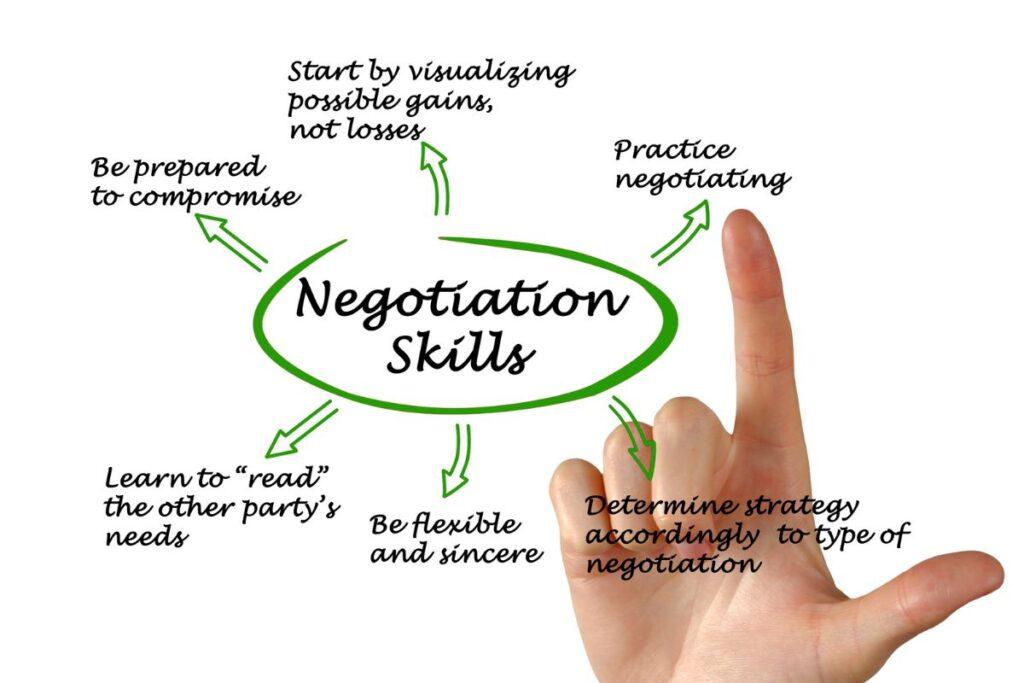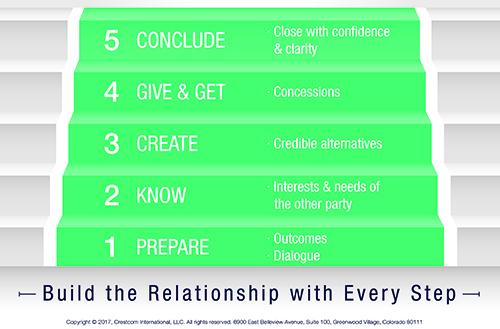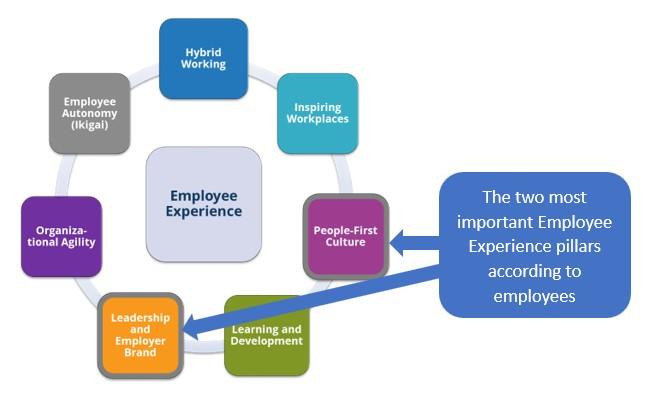
In the competitive landscape of today’s job market, landing your dream position often hinges not just on your qualifications, but on your ability to navigate the intricate dance of negotiation. Mastering negotiation skills transforms a standard job offer into a personalized career opportunity, ensuring that your aspirations and needs are met alongside those of your prospective employer.This delicate interplay requires a blend of confidence, empathy, and strategic thinking.Whether you’re stepping into the workforce for the first time or seeking to make a significant career move, understanding the art of negotiation can be the key that unlocks doors to fulfilling and prosperous professional journeys. Join us as we delve into the essential techniques and insights that empower you to negotiate effectively, securing not just any job, but the one that truly aligns with your dreams.
Table of Contents
- Building Confidence Through Strategic Preparation
- Effective Communication Tactics for Persuasive Negotiations
- Understanding Employer Motivations to Tailor Your Approach
- Crafting compelling Offer Proposals
- Navigating Common Negotiation Challenges
- Sealing the Deal with Professionalism and Follow-Up
- In summary

Building Confidence Through Strategic Preparation
Confidence in negotiation doesn’t just happen overnight—it’s built through intentional, strategic preparation. By thoroughly understanding your value and the dynamics of the job market, you position yourself to engage in conversations with assurance and clarity. Start by researching the typical salary ranges for your desired position and industry. This knowledge not only informs your expectations but also empowers you to advocate effectively for your worth.
Another crucial aspect is practicing your negotiation dialogue. Role-playing scenarios with a friend or mentor can help you articulate your achievements and aspirations compellingly. Additionally, preparing responses to potential objections ensures you remain poised under pressure. Developing a clear understanding of your non-negotiables and areas where you can be flexible also contributes to a balanced and confident negotiation stance.
Here’s a simple table to guide your preparation:
| Preparation Step | Action Items |
|—————————–|———————————————-|
| Research | – Salary benchmarks
– Company culture |
| Self-Assessment | – List achievements
– Identify strengths |
| Practice Negotiation | – Role-play scenarios
– Refine pitches |
| Set Clear Goals | – Define desired outcomes
– Establish limits |
By following these strategic steps, you not only enhance your readiness but also build the self-assurance needed to navigate negotiations successfully, bringing you closer to securing your dream job.
Effective Communication Tactics for Persuasive Negotiations
In the journey to securing your dream job,mastering effective communication is paramount. Persuasive negotiations hinge on your ability to convey your value clearly and confidently. Start by actively listening to the employer’s needs and concerns, which allows you to tailor your responses to align with their expectations. This demonstrates empathy and a genuine interest in finding a mutually beneficial agreement.
Clarity and conciseness are your allies in negotiations. Articulate your qualifications and achievements succinctly,avoiding jargon that might obscure your message. Confidence plays a crucial role; speaking with assurance without appearing arrogant can considerably influence the negotiation outcome. Additionally, non-verbal cues such as maintaining eye contact, using appropriate gestures, and exhibiting open body language can reinforce your verbal messages and build trust.
| Tactic | Description |
|———————|—————————————————|
| Active Listening | Fully engage with the speaker to understand needs. |
| Clear Articulation | Communicate your points succinctly and directly. |
| Confident Delivery | Present your case with assurance and poise. |
| Positive Body Language | Use gestures and expressions to reinforce messages. |
By integrating these communication tactics into your negotiation strategy, you enhance your ability to persuade effectively, paving the way to secure the job you aspire to.
Understanding Employer Motivations to Tailor Your Approach
To negotiate effectively and secure your dream job, it’s essential to grasp what drives employers during the hiring process. Employers are not just looking for the right skills; they balance a multitude of factors to make decisions that align with their company’s goals and culture. By understanding these underlying motivations,you can tailor your negotiation strategy to resonate more deeply with what matters most to them.
Common employer motivations include budget constraints, the desire for long-term commitment, cultural fit, and the need for specific expertise. As a notable example, a company operating within tight financial limits may prioritize candidates who demonstrate flexibility and offer compelling value beyond just salary.Alternatively,organizations focused on fostering a strong team dynamic might emphasize the importance of interpersonal skills and cultural alignment during negotiations.
Tailoring your approach involves aligning your negotiation points with these motivations. Highlighting how your skills can drive company success, showcasing your adaptability, or emphasizing your commitment to the company’s mission can make your proposal more appealing. Understanding and addressing the employer’s priorities not only strengthens your position but also fosters a collaborative atmosphere conducive to reaching a mutually beneficial agreement.
| Employer Motivation | tailored Negotiation Strategy |
|——————————-|————————————————————-|
| Budget Constraints | propose flexible compensation packages or performance-based incentives. |
| Long-term Commitment | Emphasize your dedication and willingness to grow with the company. |
| Cultural Fit | Showcase your alignment with company values and team-oriented mindset. |
| Specific Expertise Needed | Highlight your unique skills and how they address the company’s immediate needs. |
Crafting Compelling Offer Proposals
Crafting a compelling offer proposal is a pivotal step in the negotiation process, serving as your formal presentation of what you bring to the table and what you seek in return. This document should not only highlight your skills and experiences but also clearly outline your expectations, ensuring both parties are aligned from the outset. A well-crafted proposal demonstrates your professionalism and preparedness, setting a positive tone for subsequent discussions.
Start by succinctly summarizing your qualifications and how they specifically address the company’s needs. This establishes a strong foundation, showcasing your value proposition. Next, detail your compensation requirements, including salary, benefits, and any additional perks that are important to you. Clarity in these areas helps prevent misunderstandings and facilitates a smoother negotiation process.
to illustrate the key components of an effective offer proposal, consider the following table:
| component | Description |
|————————|——————————————————|
| Salary | Specify your desired base compensation |
| Benefits | Outline preferred health, retirement, and perks |
| Role Expectations | Define key responsibilities and performance metrics |
| Start Date | Propose a feasible commencement date |
Incorporating these elements ensures that your proposal is extensive and easy to navigate. Additionally, be prepared to provide rationale for your requests, such as market research or examples of past achievements, to substantiate your proposals. By thoughtfully addressing each section,you create a balanced and persuasive offer that increases the likelihood of securing your dream job.
Navigating Common Negotiation Challenges
is a pivotal step toward securing your dream job. Often, candidates encounter obstacles that can undermine their negotiation efforts, from nervousness to unclear objectives. By identifying and understanding these challenges, you can equip yourself with strategies to handle them effectively, ensuring a more triumphant negotiation process.
| Challenge | Impact | Solution |
|————————-|——————————————-|————————————–|
| Anxiety and Stress | Hinders clear communication | Practice relaxation techniques |
| Lack of Preparation | Missed opportunities for favorable terms | Research and rehearse key points |
| Unclear Objectives | Difficulty in achieving desired outcomes | define and prioritize your goals |
| Fear of Rejection | May lead to under-negotiating terms | Adopt a positive mindset and embrace the possibility of ‘no’ as a learning step |
by recognizing these common challenges, you can develop strategies to overcome them. Start by thoroughly preparing your proposal and anticipating potential objections. engage in mock negotiations to build your confidence and refine your approach. additionally, maintaining clear, open communication throughout the process ensures that both parties work towards a mutually beneficial agreement. Mastering these aspects will not only enhance your negotiation skills but also significantly increase your chances of landing the job you aspire to.
Sealing the Deal with Professionalism and Follow-Up
Once the negotiation discussions naturally wind down, the true test begins—sealing the deal with professionalism and diligent follow-up. This phase is pivotal in reinforcing your commitment to the role and ensuring all agreed-upon terms are clearly understood by both parties.
Professionalism during follow-up demonstrates your reliability and enthusiasm for the position. Promptly sending a thank-you email post-interview not only shows gratitude but also provides an opportunity to reiterate your key strengths and interest in the role. It’s essential to maintain clear and courteous communication, addressing any outstanding questions or clarifications needed.To streamline your follow-up process, consider the following key steps:
| Step | Action | Timing |
|———————|—————————————–|—————–|
| Immediate Thank-You | Send a personalized thank-you email | within 24 hours |
| Clarification | Address any questions from the interview | Within 48 hours |
| Confirmation | Reiterate your interest and summarize terms | After negotiations |
By adhering to these steps, you not only leave a lasting positive impression but also set the foundation for a smooth transition into your new role.
In Summary
As you embark on the journey to secure your dream job, remember that mastering negotiation is not just a skill, but a powerful tool in your professional arsenal.By understanding your value,communicating effectively,and approaching each conversation with confidence and respect,you set the stage for opportunities that align with your aspirations. Embrace the art of negotiation as a pathway to not only achieving your career goals but also fostering meaningful and mutually beneficial relationships in the workplace. Your dream job awaits—equip yourself with these skills and take the decisive steps toward making it a reality.





















